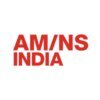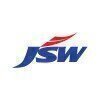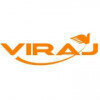Filter interviews by
Vizag Steel Senior Mechanical Executive Interview Questions and Answers
10 Interview questions
To avoid distortion while gas cutting steel, measures like preheating, using proper cutting speed, and cooling are adopted.
Preheating the steel before cutting to reduce thermal shock
Using proper cutting speed to prevent excessive heat buildup
Cooling the steel after cutting to prevent warping
Using a jig or fixture to hold the steel in place during cutting
Using a smaller cutting torch tip to reduce heat input
Using a...
To avoid distortion, proper design, material selection, and manufacturing processes should be followed.
Use appropriate design techniques to minimize stress concentrations.
Select materials with suitable mechanical properties to withstand applied loads.
Ensure proper heat treatment and surface finishing to reduce residual stresses.
Implement accurate manufacturing processes to maintain dimensional stability.
Perform re...
Forged steel is used for machine parts due to its superior strength, durability, and resistance to wear and tear.
Forged steel has a higher tensile strength compared to other materials, making it ideal for heavy-duty machine parts.
It has excellent toughness and impact resistance, ensuring the parts can withstand high loads and vibrations.
Forged steel is highly resistant to wear and tear, reducing the need for frequ...
Pitch circle diameter in spur gear is calculated using the formula: PCD = (Number of teeth / Diametral pitch)
The pitch circle diameter (PCD) is the diameter of the imaginary circle that passes through the center of the gear teeth.
To calculate the PCD, you need to know the number of teeth on the gear and the diametral pitch.
The formula to calculate PCD is PCD = (Number of teeth / Diametral pitch).
For example, if a ...
The lip angle on a drill bit refers to the angle formed between the cutting edge of the drill bit and the surface of the material being drilled.
The lip angle affects the cutting action and chip formation during drilling.
A smaller lip angle provides a more aggressive cutting action, but may cause the drill bit to wander or chatter.
A larger lip angle provides a more controlled cutting action, but may generate more h...
Distortion during welding refers to the changes in shape or dimensions of the welded material caused by the heat and cooling processes.
Distortion occurs due to the expansion and contraction of the material during welding.
It can result in changes in the straightness, flatness, or angularity of the welded components.
Distortion can be minimized by using proper welding techniques, such as preheating, controlling heat ...
The formula for feed calculation in mechanical engineering is Feed = (Number of teeth on the cutter x RPM x Chip load)
Feed is a crucial parameter in machining operations
It determines the rate at which the cutting tool advances into the workpiece
The formula for feed calculation involves the number of teeth on the cutter, RPM (revolutions per minute), and chip load
Chip load refers to the thickness of the material re...
The pitch of a thread refers to the distance between adjacent threads on a screw or bolt.
Pitch is typically measured in millimeters or inches.
It determines the tightness or looseness of the fit between the screw and the threaded hole.
A finer pitch means more threads per unit length, resulting in a tighter fit.
A coarser pitch means fewer threads per unit length, resulting in a looser fit.
For example, a screw with a...
The chip relieving angle is the angle between the cutting edge of a tool and the surface of the workpiece.
The chip relieving angle is important in machining operations as it affects the chip formation and evacuation.
A larger chip relieving angle allows for better chip flow and reduces the chances of chip clogging or built-up edge.
Different materials and cutting conditions may require different chip relieving angle...
Stitch cutting can be used to prevent distortion on longer products by cutting them into smaller sections and then removing the stitches after cooling.
Distortion can occur on longer products during gas cutting.
Stitch cutting involves cutting the product into smaller sections using stitches.
After cooling or reaching normal temperature, the stitches are removed.
This method helps to prevent distortion on the product.
...
Vizag Steel Senior Mechanical Executive Interview Experiences
1 interview found
I applied via Naukri.com and was interviewed in Aug 2022. There were 2 interview rounds.

(10 Questions)
- Q1. What is the chip relieving angle
- Ans.
The chip relieving angle is the angle between the cutting edge of a tool and the surface of the workpiece.
The chip relieving angle is important in machining operations as it affects the chip formation and evacuation.
A larger chip relieving angle allows for better chip flow and reduces the chances of chip clogging or built-up edge.
Different materials and cutting conditions may require different chip relieving angles for...
- Q2. What is the pitch of the thread
- Ans.
The pitch of a thread refers to the distance between adjacent threads on a screw or bolt.
Pitch is typically measured in millimeters or inches.
It determines the tightness or looseness of the fit between the screw and the threaded hole.
A finer pitch means more threads per unit length, resulting in a tighter fit.
A coarser pitch means fewer threads per unit length, resulting in a looser fit.
For example, a screw with a pitc...
- Q3. What is the lip angle on drill bit
- Ans.
The lip angle on a drill bit refers to the angle formed between the cutting edge of the drill bit and the surface of the material being drilled.
The lip angle affects the cutting action and chip formation during drilling.
A smaller lip angle provides a more aggressive cutting action, but may cause the drill bit to wander or chatter.
A larger lip angle provides a more controlled cutting action, but may generate more heat.
C...
- Q4. How do calculate pitch circle dia. in spur gear
- Ans.
Pitch circle diameter in spur gear is calculated using the formula: PCD = (Number of teeth / Diametral pitch)
The pitch circle diameter (PCD) is the diameter of the imaginary circle that passes through the center of the gear teeth.
To calculate the PCD, you need to know the number of teeth on the gear and the diametral pitch.
The formula to calculate PCD is PCD = (Number of teeth / Diametral pitch).
For example, if a gear ...
- Q5. What is the formula for Feed calculation
- Ans.
The formula for feed calculation in mechanical engineering is Feed = (Number of teeth on the cutter x RPM x Chip load)
Feed is a crucial parameter in machining operations
It determines the rate at which the cutting tool advances into the workpiece
The formula for feed calculation involves the number of teeth on the cutter, RPM (revolutions per minute), and chip load
Chip load refers to the thickness of the material removed...
- Q6. Why forged steel is used for machine parts
- Ans.
Forged steel is used for machine parts due to its superior strength, durability, and resistance to wear and tear.
Forged steel has a higher tensile strength compared to other materials, making it ideal for heavy-duty machine parts.
It has excellent toughness and impact resistance, ensuring the parts can withstand high loads and vibrations.
Forged steel is highly resistant to wear and tear, reducing the need for frequent r...
- Q7. What was the distortion during welding
- Ans.
Distortion during welding refers to the changes in shape or dimensions of the welded material caused by the heat and cooling processes.
Distortion occurs due to the expansion and contraction of the material during welding.
It can result in changes in the straightness, flatness, or angularity of the welded components.
Distortion can be minimized by using proper welding techniques, such as preheating, controlling heat input...
- Q8. What was the remidy to avoid dostortion
- Ans.
To avoid distortion, proper design, material selection, and manufacturing processes should be followed.
Use appropriate design techniques to minimize stress concentrations.
Select materials with suitable mechanical properties to withstand applied loads.
Ensure proper heat treatment and surface finishing to reduce residual stresses.
Implement accurate manufacturing processes to maintain dimensional stability.
Perform regular...
- Q9. What measure u adopt while doing gas cutting of steel to avoid distortion.
- Ans.
To avoid distortion while gas cutting steel, measures like preheating, using proper cutting speed, and cooling are adopted.
Preheating the steel before cutting to reduce thermal shock
Using proper cutting speed to prevent excessive heat buildup
Cooling the steel after cutting to prevent warping
Using a jig or fixture to hold the steel in place during cutting
Using a smaller cutting torch tip to reduce heat input
Using a back...
- Q10. Distortion took place on longer products, to avoid this do stich cutting instead of doing continuos gas cutting. After cooling/ normal temp. then remove/cut the stiches. Sothat it won't b distorted.
- Ans.
Stitch cutting can be used to prevent distortion on longer products by cutting them into smaller sections and then removing the stitches after cooling.
Distortion can occur on longer products during gas cutting.
Stitch cutting involves cutting the product into smaller sections using stitches.
After cooling or reaching normal temperature, the stitches are removed.
This method helps to prevent distortion on the product.
Examp...
Interview Preparation Tips
Top trending discussions






Interview questions from similar companies

Senior Engineer Interview Questions & Answers
Jindal Steel and Powerposted on 18 May 2020
I applied via Naukri.com and was interviewed in Nov 2019. There were 3 interview rounds.
Interview Questionnaire
8 Questions
- Q1. About your professional & family details
- Q2. Is there any previous experience about coke oven plants & steel industry
- Q3. If you have the previous experience about those plant then they will ask u question regarding those plant systems.
- Q4. Tell me two most Appreciateable job you have done and two mistakes with the findings from that mistake.
- Q5. About PCS7 software knowledge & siemens plc automation related details
- Q6. Field instruments related questions, like control valves, transmitters, analyzers etc.
- Q7. How to calibrate a control valve
- Ans.
Control valve calibration involves adjusting the valve to ensure it operates within specified parameters.
Determine the valve's operating range and desired set points
Use a calibration bench or in-line calibration equipment to adjust the valve's position and response time
Verify the valve's performance using a flow meter or pressure gauge
Document the calibration process and results for future reference
- Q8. Pcs7 server client systems
Interview Preparation Tips
HR round is very general discussion, No Group discussion held.
Overall you have a good interviewing experience if you have a sound technical skills in your field.
Interview has two part
1. Telephonic interview with general details & basic technical question related to that post.
2. On site interview with details discussion & technical & HR discussion.

I applied via Approached by Company and was interviewed before May 2021. There were 3 interview rounds.

(1 Question)
- Q1. All about area related work
(1 Question)
- Q1. Package finalizing and house allotment process
Interview Preparation Tips

I appeared for an interview before Jan 2021.




(3 Questions)
- Q1. What are your salary expectations?
- Q2. Any questions hr team
- Ans. My contact no not any time network area ple msg me
- Q3. Any questions hr team
Diploma
(1 Question)
- Q1. What are your salary expectations?
- Ans.
I expect a competitive salary that reflects my skills, experience, and the industry standards for a Senior Engineer role.
Research industry standards: For example, according to Glassdoor, Senior Engineers in my area typically earn between $100,000 and $130,000.
Consider my experience: With over 8 years in the field and expertise in multiple programming languages, I believe a salary in the upper range is justified.
Factor ...




Interview Preparation Tips

I applied via Job Fair and was interviewed before Feb 2021. There was 1 interview round.
(1 Question)
- Q1. BASIC ENGINEERING QUESTIONS, PROJECT RELATED QUESTIONS
Interview Preparation Tips

I applied via Naukri.com and was interviewed before Oct 2019. There were 4 interview rounds.
Interview Questionnaire
1 Question
- Q1. Technical questions on plc and scada.
Interview Preparation Tips

I applied via Walk-in and was interviewed in Jun 2021. There was 1 interview round.
Interview Questionnaire
1 Question
- Q1. Company related questions
Interview Preparation Tips

Interview Questionnaire
1 Question
- Q1. Store related question

Deputy Manager Interview Questions & Answers
ArcelorMittal Nippon Steelposted on 22 Jul 2021
I applied via Recruitment Consultant and was interviewed in Jan 2021. There were 4 interview rounds.
Interview Questionnaire
1 Question
- Q1. Normal question related to mineral processing
Interview Preparation Tips

Deputy Manager Interview Questions & Answers
ArcelorMittal Nippon Steelposted on 17 Oct 2021
I applied via Naukri.com and was interviewed in Apr 2021. There was 1 interview round.
Interview Questionnaire
1 Question
- Q1. About PEB structure?
Interview Preparation Tips
Vizag Steel Interview FAQs
Some of the top questions asked at the Vizag Steel Senior Mechanical Executive interview -
Tell us how to improve this page.
Vizag Steel Interviews By Designations
- Vizag Steel Graduate Apprenticeship Trainee Interview Questions
- Vizag Steel Graduate Apprentice Trainee Interview Questions
- Vizag Steel Apprenticeship Trainee Interview Questions
- Vizag Steel Management Trainee Interview Questions
- Vizag Steel Production Interview Questions
- Vizag Steel Operations Associate Interview Questions
- Vizag Steel Project Trainee Interview Questions
- Vizag Steel Senior Manager Interview Questions
- Show more
Interview Questions for Popular Designations
- Senior Engineer Interview Questions
- Deputy Manager Interview Questions
- Senior Executive Interview Questions
- Executive Interview Questions
- Junior Engineer Interview Questions
- Service Engineer Interview Questions
- Mechanical Engineer Interview Questions
- Maintenance Engineer Interview Questions
- Show more
Interview Questions from Similar Companies
Vizag Steel Senior Mechanical Executive Reviews and Ratings
based on 1 review
Rating in categories
|
Senior Manager
113
salaries
| ₹18 L/yr - ₹30 L/yr |
|
Manager
84
salaries
| ₹12 L/yr - ₹24 L/yr |
|
Graduate Apprenticeship Trainee
43
salaries
| ₹0.6 L/yr - ₹2 L/yr |
|
Deputy Manager
42
salaries
| ₹13 L/yr - ₹20.8 L/yr |
|
Deputy General Manager
41
salaries
| ₹24 L/yr - ₹42.2 L/yr |

Tata Steel

JSW Steel

Jindal Steel and Power

ArcelorMittal Nippon Steel
- Home >
- Interviews >
- Vizag Steel Interview Questions














